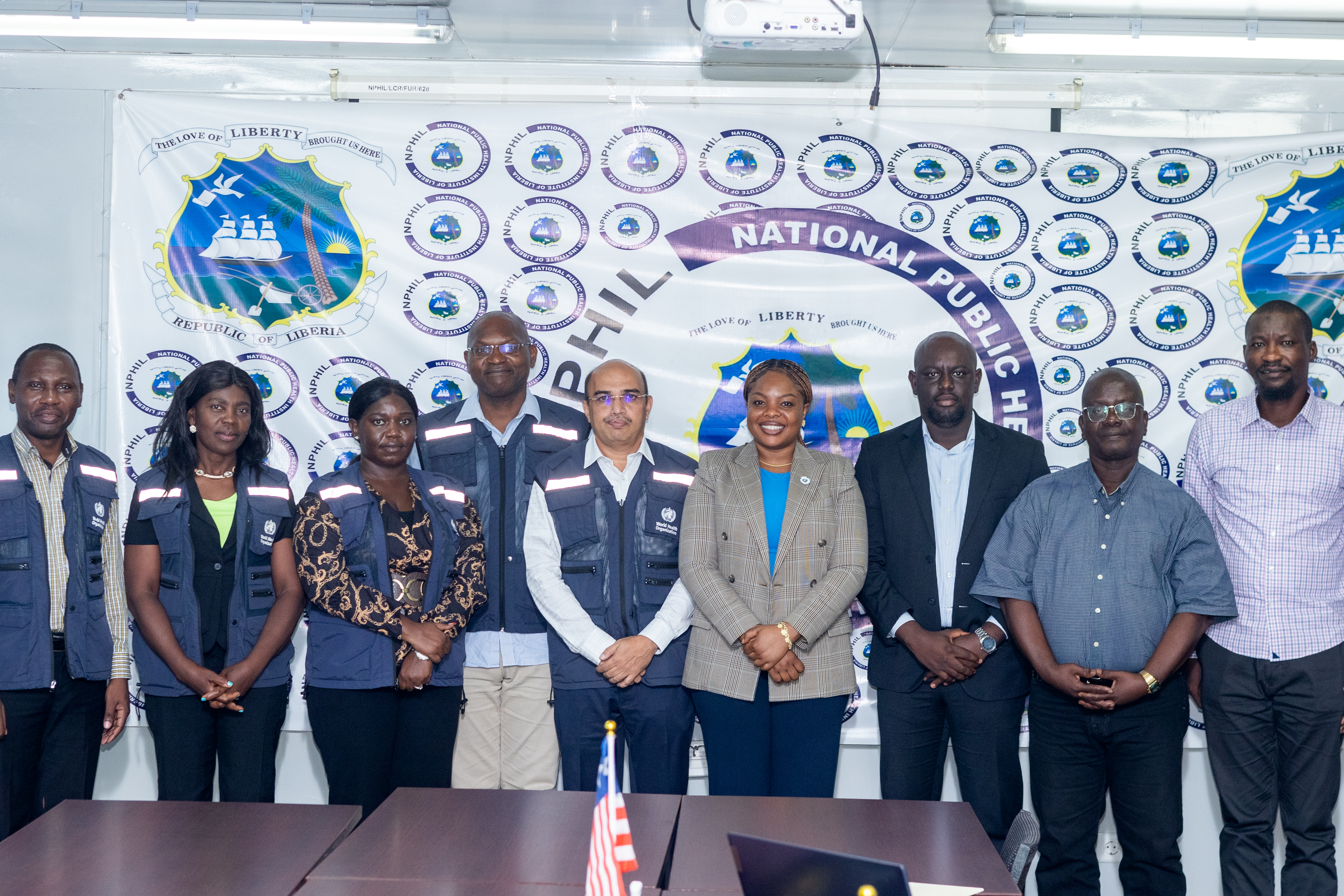Expanding Liberia's Capacity for Detection & Genomic Surveillance of Epidemic-Prone Pathogens - WHO-HERA Project

Monrovia, April 23, 2024 – The Liberia Ministry of Health with support from the World Health Organization (WHO) concluded a week-long laboratory system and genomic surveillance situation analysis and developed an action plan as part of a one-year project to be implemented as a contribution to establishing genomic sequencing capacity in Liberia for epidemic prone priority pathogens beyond COVID-19.
As part of the efforts by WHO to expand detection and genomic surveillance of epidemic-prone priority pathogens across the African Region, Liberia, Burundi, the Central African Republic, Comoros, Eritrea, and Togo have been prioritized by WHO-AFRO for the six-member states project. This project aims to build genomics capacity to detect and characterize pathogens, with the goal of establishing long-term sustainable capacity. Support for this initiative comes from the European Commission Health Emergency Preparedness and Response Authority (HERA). Additionally, the project aims to establish sustainable capacity for pathogen detection, characterization, and genomic surveillance, enhance human resources for genomic surveillance, strengthen data analysis and management using bioinformatics tools.
The analysis focused on the current capacities of the clinical and public laboratory surveillance systems in Liberia. It addressed pathogen detection, genomics, management of priority pathogens, core laboratory components, data management tools, surveillance capacity, and the country's priority pathogens for genomic surveillance. Other government ministries, agencies and some stakeholders supporting laboratory and surveillance systems including National Public Health Institute of Liberia (NPHIL), Ministry of Agriculture, Environment Protection Agency, US-CDC, the World Bank, PREVAIL, AFENET, MSF, AFROHUN/STOP SPILLAGE, and Riders for Health were also consulted.
Field visits were conducted to selected laboratories including the National Public Health Reference Laboratory (NPHRL), Water Quality laboratory, National Veterinary laboratory, Environmental Protection Agency (EPA) laboratory, PREVAIL Research Laboratory, Redemption Hospital Clinical laboratory and Montserrado County Health team. These visits assessed laboratory core components and sequencing capabilities. Additionally, visits were made to MoH, NPHIL, and Montserrado County Health Team divisions to understand the strengths, challenges and linkages of laboratory systems with the surveillance systems, data flow, data systems integration, digitalization, information sharing platforms and available policies.
Genomic surveillance plays a critical role in tracking emerging pathogen variants and has become a fundamental global public health tool for detecting, monitoring, and responding to infectious disease outbreaks. This was demonstrated in previous pandemics such as the severe acute respiratory syndrome coronavirus (SARS-CoV-2) pandemic. In 2022, WHO supported Liberia in establishing genomic sequencing capacity for SARS-CoV-2, including staff training at the National Reference Laboratory. However, due to the reduction in COVID-19 cases, the capacity for generating sequences has been underutilized. Therefore, there is a significant need to scale up pathogen genomic surveillance to include other epidemic and pandemic-prone diseases such as influenza, Lassa fever, M-pox, measles, and Ebola Virus Disease.
During the mission visit, Director General of the National Public Health Institute of Liberia (NPHIL) Hon. Jane MaCauley, expressed gratitude for the timely support to genomic surveillance, especially post-COVID-19 pandemic.
”Together, with our partners, we look forward to building a more resilient health system that can effectively respond to emerging infectious disease threats”, said Ms. MaCauley.
The Minister of Health, Dr. Louise Kpoto, also appreciated WHO for the continued support in building the resilience of Liberia's health system and health security.
"I look forward to the launch of this project in Liberia soon and in-country genomic sequencing capacity built," said Dr. Kpoto.
Dr. Peter Clement, the WHO Country Representative, thanked the mission and highlighted the significance of this EU-funded project in strengthening Liberia's laboratory systems.
"The HERA project is a great opportunity for Liberia to enhance the capacities and skills of Laboratory personnel, particularly in the field of genomic sequencing which is an advanced technology that keeps upgrading from time to time, ensuring that Liberia is well-equipped to respond effectively to infectious disease outbreaks,” said Dr. Clement
The World Health Organization Regional Office for Africa (WHO/AFRO) aims to ensure that all its 47 Member States have in-country laboratory capacity for genomic surveillance. This includes the detection, monitoring, tracking of evolution, and response to pathogens of interest. Recently, WHO/AFRO and Headquarters (HQ) developed and shared regional and global strategies, outlining alert thresholds, sampling strategies, and reporting channels for detected variants. Countries are recommended to regularly sequence or ship representative pathogen samples to their assigned reference laboratories for sequencing.

